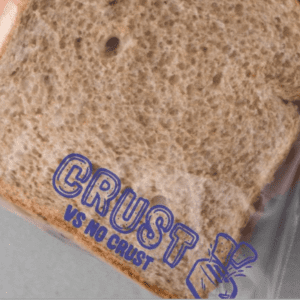(Bloomberg Gadfly)—Retailers have been trying all sorts of flashy moves to razzle-dazzle shoppers into spending money: Serve them champagne! Wow them with same-day delivery! Let them retrieve online orders from a newfangled contraption called the Pickup Tower!
But lately, something less grabby is taking center stage in their efforts: the private-label brand.
This month, Jet.com—the millennial-friendly e-commerce site owned by Wal-Mart Stores Inc., No. 3 in the Internet Retailer 2017 Top 500—debuted Uniquely J, a private brand that includes everything from paper towels to coffee to bulgogi sauce.
Kroger Co. (No. 88) recently unveiled a turnaround plan that, among other things, calls for aggressively growing three private brands. And Amazon.com Inc. (No. 1) has also been turning up the private-label heat. Since it acquired Whole Foods Market, it has begun selling the 365 by Whole Foods Brand on Amazon’s website, potentially bringing new customers to that line.
If you look at how private-label consumer-packaged goods have fared in the past several years compared to their national-brand counterparts, this might seem like a puzzling strategy.
But I can see why retailers are not deterred by recent history. And that’s because the latest wave of investment in private-label goods has a different feel to it.
In the past, many private brands might have been better described as generic brands—they were aiming to be a cheap, utilitarian alternative to the familiar goods made by the likes of Procter & Gamble Co. or Kraft Heinz Co. They weren’t really trying to have separate identities from national brands—they were just trying to be a low-price version of them.

A Uniquely J private-label bag from Jet.com.
But not this time around.
Jet’s Uniquely J plastic sealable baggies come with the words “Nom nom” stamped on them in the company’s signature bright purple color. On the page where Amazon sells its Wickedly Prime Sweet ‘n’ Cheesy Popcorn Mix, it touts that the caramel drizzled on the kernels is “crafted by experts on the shores just north of Chicago, using traditional copper kettles.”
In other words: These clearly are not just plays to win on price. These are bona fide efforts to build a beloved consumer brand.
There are encouraging signs for retailers that shoppers are willing to give private-label goods a shot. AmazonBasics, the e-commerce giant’s largest private-label line, is estimated to have pulled down $250 million in sales so far this year. And some of its other upstart brands appear to be stealing share from rivals.
And consider the impressive debut of Target Corp.’s new private-label kids’ clothing brand, Cat & Jack. In roughly its first year on store shelves, it has surpassed $2 billion in sales. For context on just how huge that is, that means its annual sales are already about as large as those of Lululemon Athletica Inc. (No. 83).
While apparel is a somewhat different business from packaged goods, you can see why that kind of success makes retailers broadly bullish about private labels. When they build a brand from scratch that has distinctive personality, shoppers have shown they’ll go for it.
That helps explain why Target (No. 20) is pushing private-label brands and exclusives in its holiday strategy this year. In a release last week about its holiday offering, it emphasized lines such as Hearth & Hand with Magnolia, a new home-goods line designed by HGTV stars Chip and Joanna Gaines.
I think most retailers are making the right call by trying to build a stable of winning, recognizable private-label offerings. In the digital era, when price comparisons are a snap and switching retailers doesn’t require a trek to another shopping center, it’s all too easy for shoppers to abandon you if they primarily come to you for ubiquitous national brands. Any time a rival has a big promotion or wrangles a better deal with a given supplier, you’ll be out of luck. Strong private brands don’t completely inoculate retailers against that, but they sure can help.
Meanwhile, companies such as P&G and Unilever NV should take these retailer forays into private labels seriously. This could change retailers’ willingness to give them prime shelf space or digital real estate for certain items, and they need to make sure they can play effective defense.
This column does not necessarily reflect the opinion of Bloomberg LP and its owners.
Favorite